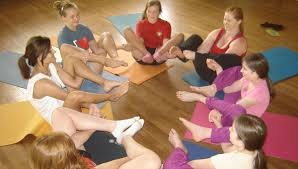
Youth at Risk or
Youth in Detention
Program
Equipping our youth to STRIVE …. with the skills they need to respond and not react and to effectively deal with difficult social and emotional situations
We want our Youth to have the tools to be able to:-
Increase their sense of control and agency
Rewire the Stress Response
Improve self-regulation of emotions and increase behavioural control
The environment
Is inclusive of ALL, regardless of social and cultural factors.
Is for all levels of physical ability and cognitive ability
Is set up in an ‘open’ shape eg circle or square, to promote a sense of safety for all
Is respectful, and the facilitator sets the tone for participation
Is not conducted with a ‘power differential’ and all participants are seen as leaders and contributors
Our Facilitators
Have a strong commitment to nonviolence.
Practice cultural humility, which is built into the practice
Nurture the strengths, interests, and talents of each student, as well as honour each person’s beliefs, customs, and values
Are experienced and qualified to facilitate classes using trauma-informed yoga approaches, to keep participants engaged and safe
Program outline
1 hr x Trauma-Informed, Mindfulness-Based Yoga and Meditation
Class sizes would consist of 10 – 20 (max) students at a time
Yoga physical movements (Asana)
Breathing exercises (pranayama), and mindfulness practices
Meditation
Skill building worksheets supported by handouts for participants to practice in between classes if they choose
Mood Inventory Survey (before and after each class) to measure emotional affects of the class
Social-cognitive interventions promote social competence by building communication skills and facilitating peer relationships.
We weave-in principles of social-cognitive therapy into the trauma-informed yoga and embodied mindfulness yoga classes which focus on:-
Keeping it fun, and relatable to “real life.”
Encouraging participants to stay involved
Connecting the activities to their goals
Providing them with examples of how the behaviors they are learning will help them get what they want—improved safety at school and in their neighborhood, greater respect from peers, improved academic performance, and perhaps a larger circle of friends.
Including games to hold students’ interest and model a variety of ways to prevent or counteract violence.
Eg; “Yogi Says” game - providing students control over the choice of information and sequence; and leadership opportunities to ‘teach’ a portion of the class
Celebrating Accomplishments and Attendance with Certificates
More about Social-cognitive Therapy
Social Cognitive Theory (SCT) started as the Social Learning Theory (SLT) in the 1960s by Albert Bandura. It developed into the SCT in 1986 and posits that learning occurs in a social context with a dynamic and reciprocal interaction of the person, environment, and behaviour.
The unique feature of SCT is the emphasis on social influence and its emphasis on external and internal social reinforcement.
SCT considers the unique way in which individuals acquire and maintain behaviour, while also considering the social environment in which individuals perform the behaviour.
The theory takes into account a person's past experiences, which factor into whether behavioural action will occur. These past experiences influences reinforcements, expectations, and expectancies, all of which shape whether a person will engage in a specific behaviour and the reasons why a person engages in that behaviour.





